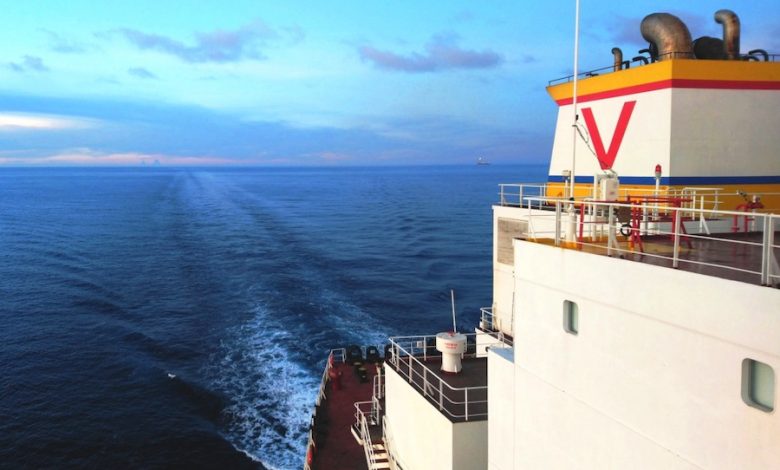Living in the material world

Di Gilpin from the Smart Green Shipping Alliance on the complete rethink shipping needs to go through once ‘All This’ is over.
How’s lockdown for you? Things I took for granted just a few weeks ago are luxuries now. Time’s gone all baggy and I find myself watching the boiling kettle, wondering who made it and where, who transported it, and how long it will last. If it breaks can I repair it?
How can I be certain of continuity in energy supplies so I can keep making the tea? We have 14 solar panels producing electricity, but powering a nation is complicated. Our panels supply the National Grid, and buy electricity and get paid for producing energy. So if the National Grid wobbles we still lose power.
In ‘All This’ (as it is known in our house) the interconnectedness of energy, materials, resources and supply chains have come into sharp focus, our vulnerabilities exposed.
At some point in the future we will be press the ‘Earth Reset’ button. The key question is: will we take the opportunity to embrace change in light of all we have learned?
Because, like it or not, the twin ongoing climate and biodiversity emergencies make this Covid-19 crisis seem like a walk in the park.
I was struck by William Fairclough’s words on his recent Splash TV broadcast. He pointed to the handysize bulk carriers “still plugging away solidly”. Rates are low but this less than glamourous segment underpins the critical supply chains for our industrialised society.
Many low paid, less-than-glamourous segments of civic society have been revealed in All This as the most essential. As we rebuild, can we build back better?
Before All This there was the creeping realisation that reducing emissions from shipping had to happen, and fast. This led to suggestions that the lifespan of a ship would need to be significantly reduced so they could be regularly upgraded incorporating the latest ‘green’ power technology. This fails to appreciate wider system impacts. Building new ships requires energy – producing emissions, breaking ships requires energy – emissions, and creates human and ecosystem horrors.
We can do better than that. Research we conducted with University of Manchester and Tata Steel found that when compared to ‘Business as Usual’ designing and manufacturing for 100% hull reuse provides an emissions reduction of 29% whilst designing for 50% reuse provides a 10% reduction. So, as we think about building zero emission vessels, we must be committed to designing them better -embracing longevity and facilitating it through modular solutions, focusing particularly on the ability to upgrade power options. We can commit to repurpose and reuse assets before recycling. When we do get to the recycling, we need to make that straightforward – more bolts, less welding, fewer materials coatings – to reclaim maximum value.
Power supply solutions directly using primary renewable energy – like wind – ensure that assets can be partially decoupled from dependency on the uncertainty of bunker fuels – of any flavour. This improves operational resilience, supporting design for longevity. We know the wind will always blow. Satellite derived data science allows us to predict when, where and how much free, clean power it will deliver to ships equipped to harness it. Our recent analysis of FastRigs – SGS’s wingsail design – conducted with the University of Southampton – evidenced average annual fuel savings of 20% on a bulk carrier. Reduce net fuel demand, reduce commercial risk from future fuel uncertainty. Become more energy-autonomous.
It’s complicated. But new and better zero emissions closed systems are possible. It doesn’t happen overnight but there is plenty of evidence from other sectors that planned transition is possible. Our research shows that smart design can eliminate 49% of a ship’s lifecycle emissions. Today. And it’s just the beginning. It takes commitment and a can-do attitude. Fairclough is confident that the shipping industry has that in abundance.
The key question is do we try and fix the old system or take this once in an epoch opportunity to build back better systems that properly value life’s essentials?

The pre-Covid-19 world was no accident. Decisions were taken, it has been deliberately crafted. Other decisions can be taken. Any post-coved-19 world we want can be crafted. Yet we might do as we have done after the two major world wars. The powers that be shaken up, attempts made to craft a better world, but as soon as the trauma began to dissipate it was another survival story – life full of poverty, short, brutish etc. etc. for the majority.